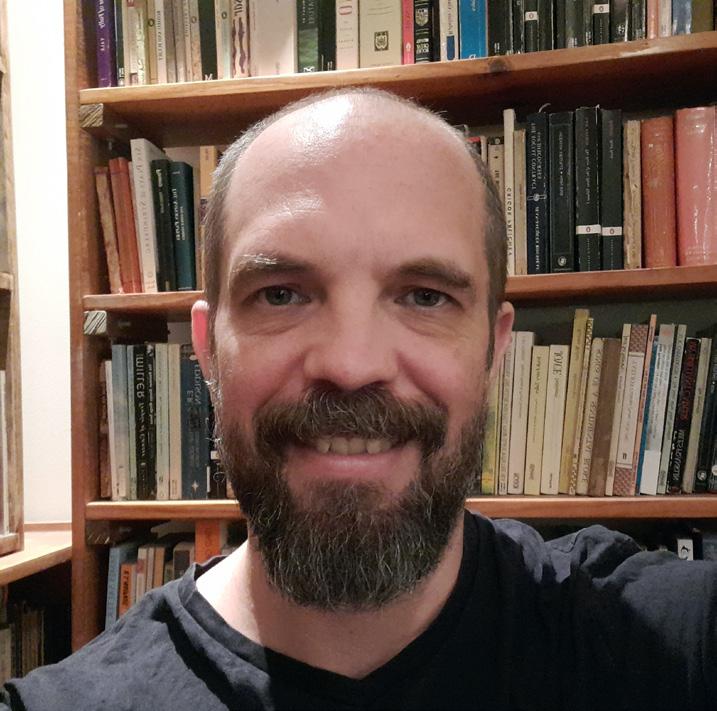
3 minute read
Member profile: Ben Madden
from Connect, March 2021
by NTEU
I have been teaching in the University of Adelaide’s Department of English and Creative Writing as a casual academic since 2017, when I returned to Australia from China, where I had been lecturing at the Beijing Foreign Studies University since 2015.
At the same time as I teach and convene across a wide range of courses, I have also been eking out a career as a researcher, producing a steady stream of publications in academic journals and even some public-facing essays and reviews. I know many readers will have a similar experience of being spread across a variety of different jobs and activities, some remunerated, some not, and know the strain of piecing together a jigsaw career, semester by semester.
Advertisement
Needless to say, it is challenging to sustain an overarching intellectual project in these circumstances, but that is what those of us who feel an academic vocation must do—in my case, this means writing a scholarly monograph. Being a casual affords access to some of the resources one needs to carry this out, but without the benefit of it being considered part of one’s official workload. Yet, when these projects come to fruition, they nonetheless reflect positively on the universities in which we are precariously lodged. For the average casual, and certainly for me, these contradictions only multiply the longer one spends in the institution.
As I’ve said, the bulk of my (remunerated) work for the University has been teaching and marking. What surprised me when I began, and continues to surprise me today, is the absence of clear channels for casuals to relay their own experience of and feedback on teaching.
I don’t know that this is the case across the sector, but I suspect it must be widespread. Casuals are often left to make sense of student feedback alone, and unless we have the good fortune of committed mentors (effectively volunteering their time), reflecting on and improving our practice falls to us.
Formal processes for professional development are reserved for continuing staff. The institution’s standpoint is probably that giving casuals structured processes for feedback and professional development would amount to a promissory note for an academic career that may or may not arrive. But in the absence of them, a great deal of lived experience, not to mention the novelty and innovation that younger scholars can inject into their teaching, is lost.
These are just some of the problems that arise from our half-in, half-out status. I had grappled with this intellectually for some time, but it didn’t fully hit me at an emotional level until, a couple of years ago, the University announced that all staff would be eligible for free flu shots—except for casuals.
That is, the people who take on an ever-increasing share of the institution’s teaching and hence have the highest levels of person-to-person contact. That was when it struck me that, in spite of the sector’s ever-increasing reliance on us, its decision-makers would often prefer to think and act as if we don’t exist.
Colleagues of mine protested this insulting exclusion directly to the Vice-Chancellor, and the following year we were eligible for our jabs. I have been the beneficiary of remarkable support and goodwill at the local level of my institution, of which this is a fairly trivial example.
But what has become increasingly apparent to me over time is that local goodwill won’t change the unfair structures of work or resolve the yawning contradictions within our higher education sector. The only thing that can do that is workers across the sector organising, demonstrating solidarity, and fighting to rebuild our institutions along lines of fairness, inclusion, and sustainability.
That’s why I joined the NTEU.










